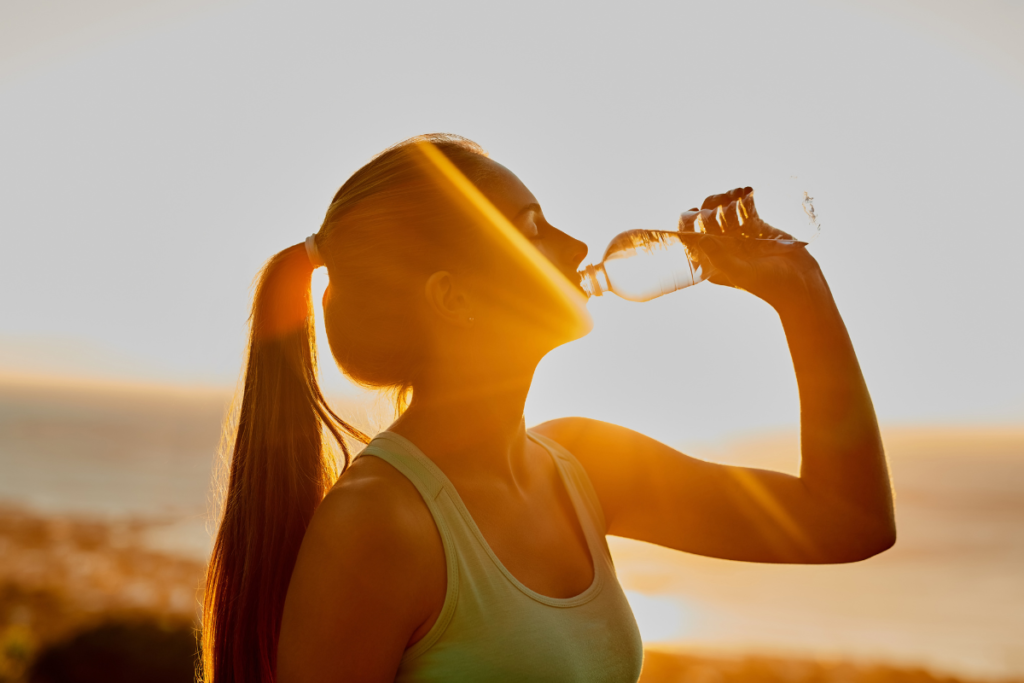Life depends on water; however, hydration has become a myth-filled subject. Do you require eight glasses of water every day? Does drinking coffee cause dehydration for you? Additionally, how can you tell if you’re drinking enough? This article will discuss the science of hydration, dispel common myths, and offer practical advice on how to effectively meet your water needs.
Why Hydration Is Important?
About 60% of an adult’s weight is made up of water, which is essential for:
1. Cellular Function
● Water transports nutrients to cells and removes waste products.
2. Temperature Regulation
● Sweating helps the body maintain optimal temperature.
3. Joint Lubrication
● Synovial fluid, which cushions joints, is water-based.
4. Cognitive Performance
● Even mild dehydration impairs memory, focus, and mood.
How Much Water Do You Need?
The widely cited “8 glasses a day” rule is oversimplified. Hydration needs vary based on the following:
● Age: Older adults may have reduced thirst sensitivity.
● Climate: Hot and humid weather increases water loss through sweat.
● Activity Level: Athletes require more fluids to replace sweat losses.
● Diet: High-protein, high-salt, or high-fiber diets require more water for digestion.
Recommendations:
● National Academy of Medicine:
● Women: 2.7 liters/day (11 cups).
● Men: 3.7 liters/day (15 cups).
● World Health Organization (WHO): Recommends including fluids from food sources like fruits and vegetables.
Hydration Myths Debunked:
Myth 1: “Each person must drink eight glasses of water every day.”
● Fact: Fluid needs vary. The “8 glasses” rule is a general guideline, not a one-size-fits-all recommendation.
Myth 2: “Caffeinated drinks dehydrate you.”
● Fact: Moderate caffeine consumption contributes to hydration. Only excessive amounts act as diuretics.
Myth 3: “A clear urine sample indicates that you are sufficiently hydrated.”
● Fact: While pale yellow indicates good hydration, obvious urine may signal overhydration.
Myth 4: “You should drink water only when thirsty.”
● Fact: Thirst often lags behind your body’s hydration needs, especially in older adults and athletes.
Signs of Dehydration:
● Dry mouth and chapped lips.
● Dark yellow urine.
● Fatigue and dizziness.
● Headaches and irritability.
● Severe cases: confusion, rapid heartbeat, and low blood pressure.
Can You Drink Too Much Water?
Yes, overhydration or water intoxication can occur, leading to hyponatremia (low sodium levels). Symptoms include nausea, headaches, and confusion. It’s rare but dangerous, especially among athletes who consume excessive water without replenishing electrolytes.
Tips for Staying Hydrated:
1. Sip Throughout the Day
● Avoid drinking large amounts at once; small sips are more effective.
2. Incorporate Water-Rich Foods
● Cucumbers, watermelons, and oranges contribute to hydration.
3. Adjust for Exercise
● For workouts longer than an hour, include electrolyte-rich beverages.
4. Limit Alcohol
● Alcohol can cause dehydration since it is a diuretic.
5. Monitor Urine Color
● An excellent sign of hydration is pale yellow urine.
What Science Says About Hydration:
1. Cognitive Function
● A Journal of Nutrition (2018) study found that mild dehydration reduced cognitive performance, particularly in tasks requiring attention and memory.
2. Athletic Performance
● Research in Sports Medicine (2020) highlighted that even 2% dehydration could impair physical performance.
3. Chronic Disease Prevention
● Staying well-hydrated lowers the risk of constipation, kidney stones, and UTIs.
FAQs About Hydration
Is coconut water better than plain water?
Coconut water replenishes electrolytes, making it ideal post-exercise, but plain water suffices for regular hydration.
Is it possible to lose weight by drinking water?
Do kids have exact water requirements?
Are electrolyte drinks necessary?
Conclusion:
Staying hydrated is important, but everyone’s requirements are different. You should be mindful of what your body requires to stay well-hydrated and stay away from myths that are quite common. Contact HealthPil for expert guidance, and we’ll work with you to enhance your well-being.
Disclaimer:
This article is for informational purposes only and does not replace medical advice. Consult a healthcare provider for specific hydration-related concerns.
How HealthPil Can Help:
At HealthPil, our experts provide personalised hydration plans tailored to your health and lifestyle. Whether you’re an athlete or managing a medical condition like kidney stones or diabetes, we offer science-backed advice to optimise your hydration.

